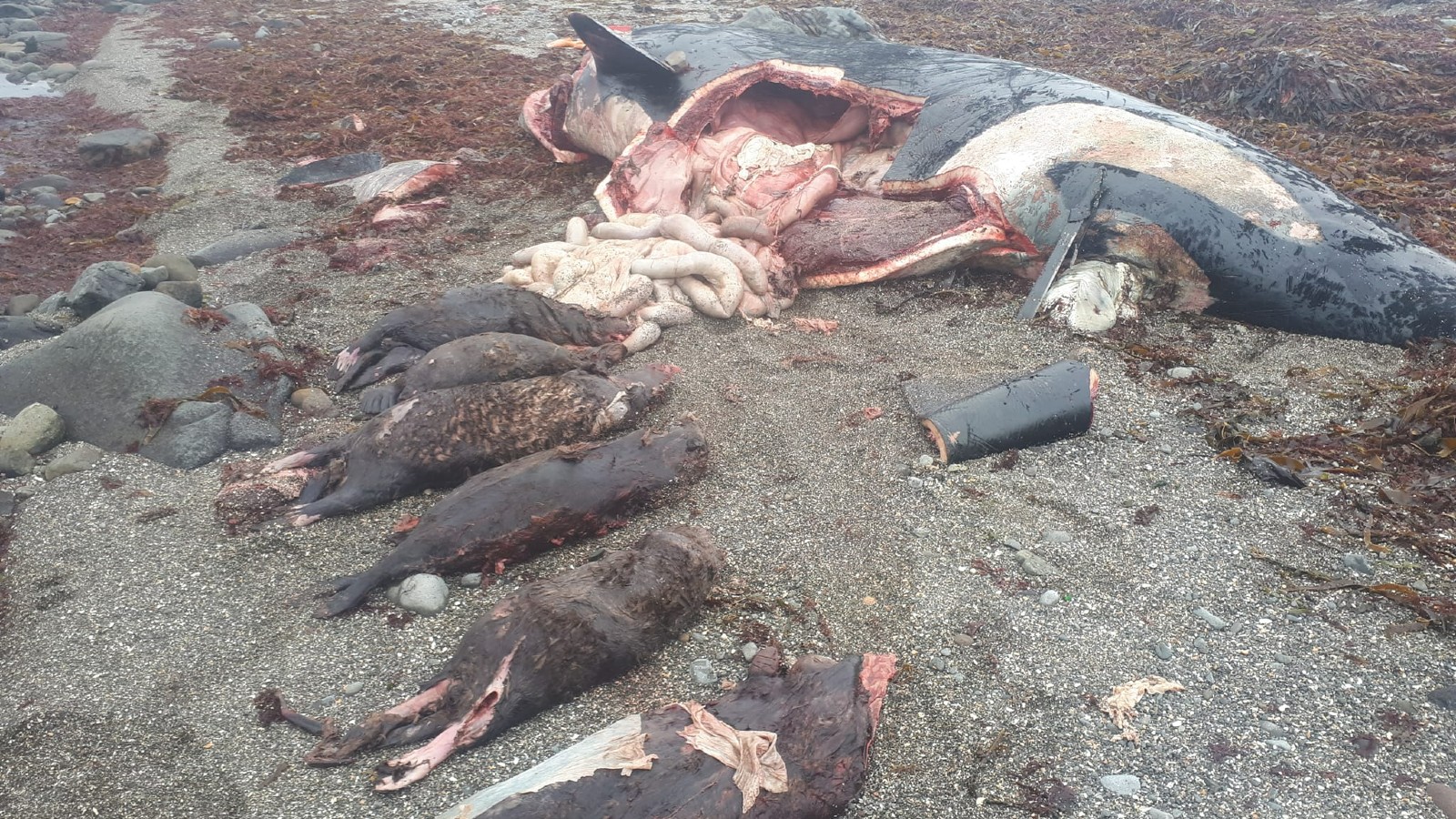Scientists investigate mysterious case of orca that swallowed 7 sea otters whole
The female orca was found far from her normal hunting ground with six whole sea otters in its stomach and one lodged between its oral cavity and the esophagus.
Get the world’s most fascinating discoveries delivered straight to your inbox.
You are now subscribed
Your newsletter sign-up was successful
Want to add more newsletters?

Delivered Daily
Daily Newsletter
Sign up for the latest discoveries, groundbreaking research and fascinating breakthroughs that impact you and the wider world direct to your inbox.

Once a week
Life's Little Mysteries
Feed your curiosity with an exclusive mystery every week, solved with science and delivered direct to your inbox before it's seen anywhere else.

Once a week
How It Works
Sign up to our free science & technology newsletter for your weekly fix of fascinating articles, quick quizzes, amazing images, and more

Delivered daily
Space.com Newsletter
Breaking space news, the latest updates on rocket launches, skywatching events and more!

Once a month
Watch This Space
Sign up to our monthly entertainment newsletter to keep up with all our coverage of the latest sci-fi and space movies, tv shows, games and books.

Once a week
Night Sky This Week
Discover this week's must-see night sky events, moon phases, and stunning astrophotos. Sign up for our skywatching newsletter and explore the universe with us!
Join the club
Get full access to premium articles, exclusive features and a growing list of member rewards.
Scientists in Russia discovered seven perfectly intact sea otters in the belly of a beached orca, according to a new study. The doomed killer whale was found far from its normal hunting grounds, raising the question of what it was doing there.
The female orca (Orcinus orca) was found in 2020 on the coastline of one of the Commander Islands, which lie offshore the Russian Far East in the Bering Sea. Scientists performed a necropsy on the animal and discovered not only the seven dead sea otters (Enhydra lutris), which collectively weighed 258 pounds (117 kilograms), but also 256 cephalopod beak parts.
Related: Opportunistic orcas have developed a new feeding behavior that appears to be killing them
One sea otter was lodged between the oral cavity and the esophagus, which may have led to the whale's demise, the researchers wrote in the study, which was published Sept. 28 in the journal Aquatic Mammals.
Several things about the killer whale have puzzled the researchers.
"It is very unusual because orcas don't normally eat sea otters," study co-author Olga Filatova, a cetacean researcher at Moscow State University, told Live Science in an email.
Instead, they hunt seals, sea lions, dolphins and even other whales. And whatever prey species they hunt, "they normally don't swallow prey whole — they usually tear it apart and eat only the best (most fatty) parts," Filatova said.
Get the world’s most fascinating discoveries delivered straight to your inbox.
Gulping down whole sea otters was likely challenging for the doomed orca, as adult sea otters can reach up to 5 feet (1.5 meters) long. The researchers think the orca may have taken this extraordinary step because it was starving.
The researchers also analyzed the orca's DNA and determined that this individual was part of a population, known as "Bigg's killer whales," that have a vast home range that stretches from the Aleutian Islands and the Gulf of Alaska, to the coastline of California.
This is the first time any member of this orca population has ever been found in the Western Pacific, leading the study authors to hypothesize that the orca learned this hunting strategy elsewhere. Feeding strategies are usually passed on from mothers to calves, the study authors noted.
While the stranded orca raises some questions, it may help answer others. For some time, sea otter populations between the Aleutian Islands and the Gulf of Alaska have dwindled.
While some scientists suspected orcas were behind the area's decreasing sea otter population, this is the first direct evidence of an orca originally from that region preying on sea otters. The finding raises the possibility that orca predation may be behind the drop in sea otters.

Elise studied marine biology at the University of Portsmouth in the U.K. She has worked as a freelance journalist focusing on the aquatic realm.
 Live Science Plus
Live Science Plus











